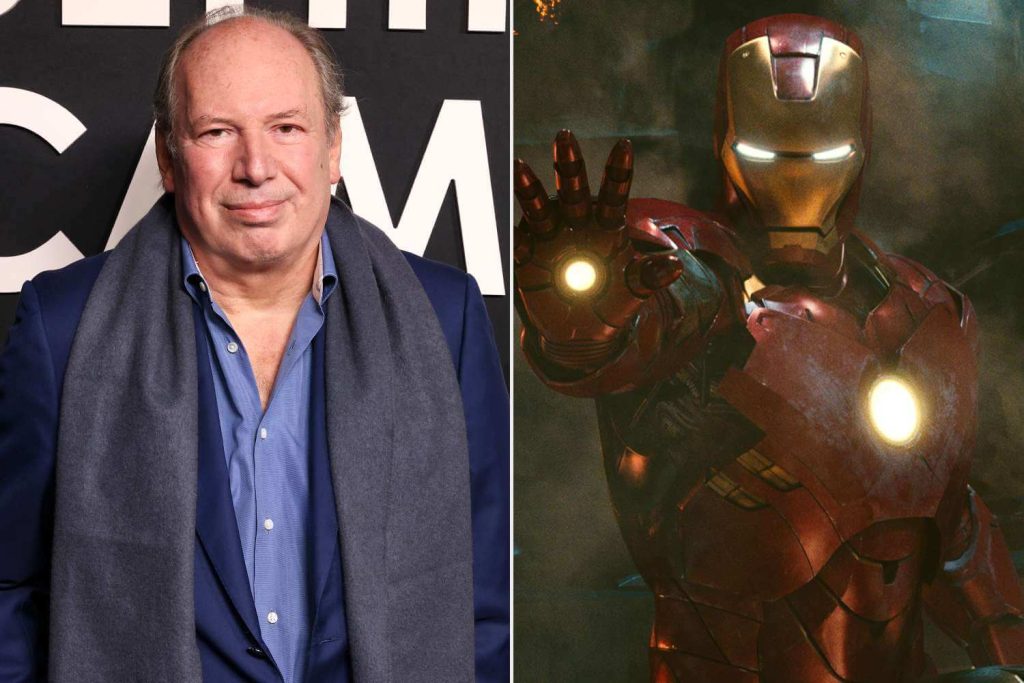World News
Hans Zimmer’s Cinematic Symphony: Navigating the Soundscape Beyond Superheroes
A Maestro’s Journey Through Iconic Scores
Hans Zimmer‘s illustrious career as a film composer has been marked by his ability to craft unforgettable musical landscapes that elevate cinematic storytelling. From the haunting melodies of The Lion King to the intense rhythms of Inception, Zimmer’s work has left an indelible mark on the film industry. His collaborations with directors like Christopher Nolan have produced scores that are both innovative and emotionally resonant, solidifying his reputation as one of the most influential composers in contemporary cinema.
Zimmer’s foray into the superhero genre includes composing for major characters such as Batman, Superman, Spider-Man, and Wonder Woman. His work on Christopher Nolan’s Dark Knight trilogy redefined the musical tone for Batman, introducing a darker, more complex auditory experience that mirrored the films’ narratives. Similarly, his compositions for Man of Steel and Wonder Woman 1984 brought fresh perspectives to these iconic characters, blending traditional orchestral elements with modern electronic sounds to reflect their evolving stories.
Despite his significant contributions to the superhero genre, Zimmer has consciously chosen to step away from similar projects in recent years. In a candid discussion, he revealed that while Marvel Studios had approached him for potential collaborations, he declined these opportunities. Zimmer explained that his decision stemmed from a desire to explore new creative challenges, rather than revisiting familiar superhero themes.

Seeking New Horizons Beyond the Superhero Realm
Zimmer’s decision to move beyond the superhero genre stems from a desire to explore new creative avenues. Having already contributed to the musical identities of some of the most iconic superheroes, he expressed a yearning for fresh challenges that would allow him to innovate and expand his artistic repertoire. This inclination reflects a broader philosophy among artists who, after achieving significant milestones in a particular domain, seek to diversify their portfolios to avoid creative stagnation.
His recent projects illustrate this shift. Zimmer composed the score for Denis Villeneuve’s Dune, a science fiction epic that required the creation of an entirely new musical language to match the film’s expansive universe. This project allowed Zimmer to experiment with unconventional instruments and vocalizations, resulting in a soundtrack that is both otherworldly and deeply immersive. His work on Dune not only garnered critical acclaim but also earned him his second Academy Award for Best Original Score, reaffirming his ability to reinvent himself and adapt to diverse cinematic landscapes.
Additionally, Zimmer collaborated with Camila Cabello on the song “Take Me Back Home” for the documentary series Frozen Planet II, showcasing his versatility in blending contemporary music styles with traditional scoring techniques. These endeavors highlight his commitment to seeking out projects that challenge him to think differently and push the boundaries of his craft.
Respecting Established Musical Legacies
Zimmer’s reluctance to engage with certain franchises also stems from a deep respect for existing musical legacies. Regarding the Star Wars universe, he acknowledged the monumental work of John Williams, whose compositions have become synonymous with the franchise’s identity. Zimmer expressed that entering such a well-defined musical realm would require an opportunity to reinvent the soundscape, a prospect he approaches with caution.
He also recognized the innovative contributions of Ludwig Göransson to the Star Wars series, particularly in The Mandalorian, noting that too many alterations could risk diluting the essence of what makes the original compositions iconic. This perspective underscores Zimmer’s thoughtful approach to his work, where he carefully considers the cultural and historical context of a project before committing to it. By doing so, he ensures that his contributions are both respectful of the original material and offer a fresh perspective that enhances the overall narrative.

The Evolution of a Composer’s Artistic Vision
Zimmer’s career trajectory reflects an artist in constant evolution, unafraid to step away from familiar territories to explore new creative landscapes. His willingness to decline high-profile projects, such as those offered by Marvel Studios, demonstrates a commitment to personal growth and artistic integrity. This evolution is not uncommon among seasoned artists who, after years of working within specific genres, seek to redefine their contributions to their field.
By venturing into diverse genres and experimenting with different musical styles, Zimmer continues to challenge himself and his audiences. His ability to adapt and innovate ensures that his work remains relevant and impactful, inspiring both contemporaries and emerging composers in the industry. This dynamic approach to his craft not only enriches his personal artistic journey but also contributes to the broader evolution of film music.
A Legacy of Innovation and Inspiration
Hans Zimmer’s influence on film scoring is profound, with a legacy characterized by innovation, versatility, and a relentless pursuit of artistic excellence. His decision to move beyond the superhero genre and seek out new challenges exemplifies an artist dedicated to continuous growth. As he explores uncharted musical territories, Zimmer not only reinvents his own sound but also sets new standards for what film music can achieve.
Aspiring composers and musicians can draw inspiration from Zimmer’s career, understanding that true artistry often involves taking risks and stepping outside one’s comfort zone. By doing so, artists can discover new facets of their creativity and contribute original perspectives to their respective fields. Zimmer’s journey serves as a testament to the power of embracing change and the endless possibilities that come with a fearless approach to art.
In conclusion, Hans Zimmer’s decision to decline scoring for Marvel films is a reflection of his desire to seek new artistic challenges and respect for established musical legacies. His career continues to evolve as he explores diverse projects that push the boundaries of film music, solidifying his status as a trailblazer in the industry. As audiences and fellow artists observe his journey, Zimmer’s legacy serves as a beacon of innovation, inspiring future generations to pursue their creative passions with courage and conviction.
From thedragonfashion


